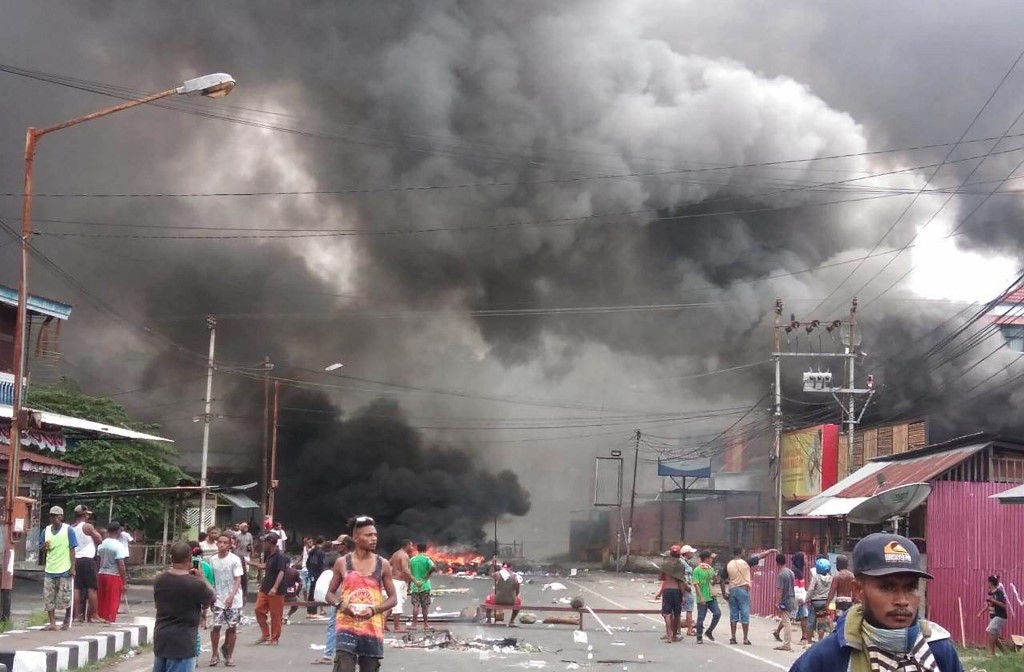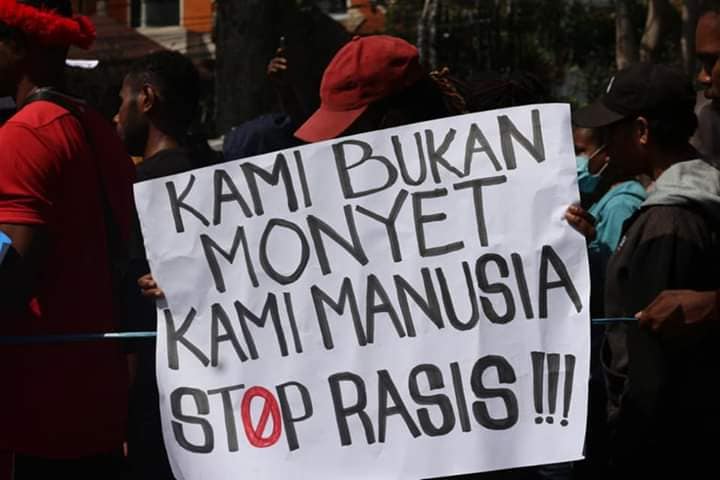Hey there, my fellow Indonesians, it’s me, your half Javanese-half Sumatran girl. With the discourse on #BlackLivesMatter and its Indonesian counterpart #PapuanLivesMatter dominating our social media timelines recently, I would like to take this opportunity to talk to you about the morbidly ugly elephant in the room: racism.
At this point, I believe that we’ve all said and done racist shit in the past. While I believe that this discussion should have been had a long time ago, I personally think it’s timely as #BlackLivesMatter has also been adopted by our Papuan friends to protest the atrocities they face, wherever they are in this country.
Since I was born into this world, I have barely (if ever!) been treated differently just because of my ethnicity. I grew up being told that my skin color is “ideal.” I’ve never had difficulties blending in with others in public places — no one stared at me because of how I look. I’ve never felt excluded from basically any discourse or anything taking place at a national level, and I barely get stereotyped, owing to the fact that I am a part of the majority here in Indonesia.
I believe many of you who are reading are more or less on the same boat.
I cannot begin to imagine the pain black and Papuan people have felt when they hear those words.
While you and I go about our daily lives largely unbothered, I’m certain you’ve heard awful remarks about black and Papuan people spewed out by your friends or relatives. I’ve heard my fair share of them too. I can even list some of them right now, as I tend to be good at remembering fucked up moments:
“Aren’t Polish players afraid of being surrounded by the black players?” asked a family member while I watched a World Cup match between Poland and Senegal in 2018.
“Happy birthday, my [N-word],” my friends wrote on Instagram to each other. These tend to be the same people who don’t bother to leave out the slur when they’re singing along to Kendrick Lamar or Tyler, The Creator.
“The Eastern Indonesian people are scary, you should mind your belongings when you’re near them,” said both young and old people in my life, on different occasions.
“There’s a monkey on the new IDR10K banknote,” another family member quipped about Frans Kaisiepo, a Papuan politician who was posthumously declared Indonesia’s national hero in 1993.
Then, last year, that same person shared a suspiciously propagandist video of Papuans singing and chanting “Sa Papua, Sa Indonesia” (I’m Papuan, I’m Indonesian) — a slogan Papuan people and activists say was trended by pro-government buzzers — on a Whatsapp group.
The video was sent as protests condemning mistreatment and racial abuse against Papuan citizens took place throughout the country, after 43 Papuan students in Surabaya were arrested for allegedly refusing to raise the Indonesian flag in front of their boarding home for Indonesia’s Independence Day on August 17. The authorities that surrounded their boarding home didn’t hold back with their racism as they insulted the students by calling them “monkeys.”

Even though none of those statements had been directed at me, they have been haunting me to this day. I cannot begin to imagine the pain black and Papuan people have felt when they hear those words.
Now that I have your attention: I’m talking to you, the people who joke at their expense. No, you are not and will never be funny or edgy as you consider yourself to be. Because you know what’s actually in? Awareness that racism is ugly and shouldn’t be excused in any form.
You realize how fucked up it is to say the N-word when you’re not black, yet you keep saying it freely and proudly. Why is it so hard for you not to say the N-word, when you didn’t even go through what black people went through to finally reclaim the word as theirs?
You can still enjoy hip hop, of course, and I promise your lives will go on as normal when you refrain from saying it. On top of that, if you’re really a fan of the genre you should very well know that the struggles of black people in America come with the music.
As clichéd as this sounds, we all have a part to play for a better Indonesia, so let’s try to do better individually.
Some of us may be helping trend the hashtags and calling on others to learn more about the Black Lives Matter movement and the struggles our Papuan friends face, but there’s notable opposition to the discourse here in Indonesia — from those who dismiss the act of raising awareness of the truly abhorrent system, which has endangered actual lives on the basis of their race, as “edgy” and, like some of you like to call it, a “truly SJW (social justice warrior) behavior.”
While there should be another discussion about that term — which has since received a pejorative connotation for those who vocally advocate for socially progressive views, especially online — how is speaking up against racism wrong? Is it wrong that we don’t want to see another generation in Indonesia growing up with racist mindsets, or not batting an eye when Papuan people are racially discriminated against by the majority, and having to face senseless violence from authorities?

It got me thinking: if you think banding together to fight against racism and other atrocities is “edgy,” I wonder where your moral compass points. It’s definitely not pointing towards societal progress.
As clichéd as this sounds, we all have a part to play for a better Indonesia, so let’s try to do better individually. This means calling out your racist friends and family members, educating ourselves on black and Papuan issues, listening to the downtrodden minorities, amplifying their voices and handing over the mic to them. And lastly, for the love of God, please stop saying the N-word.
Also Read: Anti-racism protests in the US are shining the light on racism against Papuans in Indonesia


